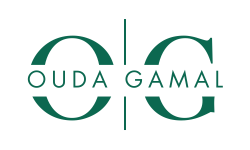Monday Pharma Briefing – Week 41, 2025: Roche Gains FDA Nod for Lung Cancer Combo, Novartis Launches Tourmaline Bid, and Addex Expands CNS Pipeline with Key Asset Gains and more
Summary:
In this episode, we cover major biotech developments including Roche’s FDA approval for its lung cancer combo therapy and tender offer for 89bio, Novartis’ bid to acquire Tourmaline Bio and FDA nod for Rhapsido, plus Addex Therapeutics’ CNS pipeline expansion and key asset recovery. We also highlight Boehringer Ingelheim’s new patient access platform, CRISPR’s gene editing data reveal, and new alliances from VERAXA and HemostOD.
Transcript:
Roche has received approval from the United States Food and Drug Administration for the use of Tecentriq in combination with lurbinectedin as a first-line maintenance therapy for patients with extensive-stage small cell lung cancer. This approval marks a significant step in addressing a particularly aggressive form of lung cancer, expanding Roche’s oncology treatment portfolio.
In a strategic acquisition move, Roche has initiated a tender offer to purchase all outstanding shares of eighty-nine bio Incorporated. The offer includes fourteen dollars and fifty cents in cash per share, along with a non-tradeable contingent value right that may provide up to six dollars per share in additional cash, depending on regulatory milestones. This acquisition aims to strengthen Roche’s position in the metabolic disease space.
Roche also announced promising performance data for its sixth-generation Troponin T test. The newly CE-marked diagnostic tool demonstrated high sensitivity and improved accuracy in identifying myocardial infarctions in clinical studies involving over thirteen thousand patients. The company highlights that this advancement could support earlier and more reliable diagnosis of heart attacks.
In another development, Novartis has gained United States Food and Drug Administration approval for Rhapsido, also known as remibrutinib. This drug is the first oral targeted Bruton’s tyrosine kinase inhibitor approved for treating chronic spontaneous urticaria. The approval provides a new treatment option for patients who suffer from this condition despite antihistamine use.
Continuing its acquisition activity, Novartis has commenced a tender offer to acquire Tourmaline Bio for forty-eight dollars per share in cash. The transaction, announced under a previously agreed merger agreement, is part of Novartis’ efforts to expand its pipeline of immunology and inflammation therapies.
Boehringer Ingelheim has launched a new direct-to-consumer platform in the United States called Boehringer Ingelheim Access. The platform allows eligible patients to obtain certain medications, including Spiriva Respimat, for a flat rate of thirty-five dollars per month. The initiative is intended to increase access to important treatments and improve affordability for patients managing chronic conditions.
VERAXA Biotech and Secarna Pharmaceuticals have formed a research and development alliance focused on antibody-oligonucleotide conjugates. This collaboration aims to address unmet needs in immunology, particularly in autoimmune and inflammatory diseases, by combining VERAXA’s antibody discovery capabilities with Secarna’s antisense oligonucleotide platform.
Addex Therapeutics has released its financial results for the first half of twenty twenty-five. The company reported a net loss and a cash position of two point three million Swiss francs. Addex also provided a corporate update, noting progress in its GABAB receptor positive allosteric modulator program for chronic cough, and announced it has regained full rights to its mGlu2 receptor program after a partnership ended.
CRISPR Therapeutics announced it will present new preclinical data at the European Society of Gene and Cell Therapy’s annual congress. The data focuses on a novel approach to treating Alpha-one Antitrypsin Deficiency using the company’s SyNTAX gene editing platform. The therapy aims to correct the underlying genetic mutation, offering a potential cure for patients affected by this inherited disorder.
Immatics has named Venkat Ramanan as its new Chief Financial Officer. Ramanan brings more than twenty years of financial leadership experience, including roles at both public and private life sciences companies. His appointment is expected to support Immatics’ continued growth and financial strategy as it advances its pipeline of T-cell receptor-based immunotherapies.
HemostOD has successfully raised four point three million Swiss francs in seed extension funding. The financing will be used to advance the company through pre-Investigational New Drug development and to expand commercial-scale manufacturing capabilities. HemostOD is focused on developing therapeutics targeting life-threatening bleeding disorders, and the new funding is expected to accelerate its progress toward clinical trials.
Stay updated:
🔗 Connect on LinkedIn → Click Here
📩 Subscribe to Newsletter → Click Here

